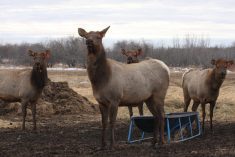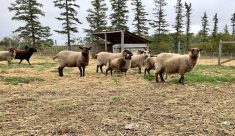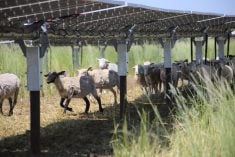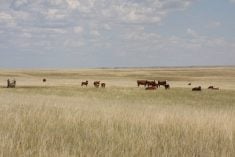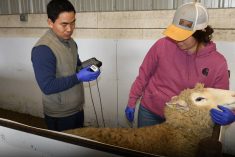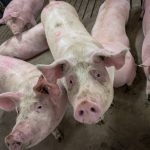There are calls for more separation between domestic and wild sheep following the death of several Bighorn rams in Bluerock Wildland Provincial Park and Sheep River Provincial Park.
The animals were infected with Mycoplasma ovipneumoniae (Movi), a disease common in the airways of domestic sheep and goats. The disease is bacterial and there is no vaccine for control.
“Movi is a respiratory pneumonia that a lot of times domestic sheep will carry without showing signs or symptoms. They can transmit it to our Bighorn sheep, and our Bighorn sheep don’t have the immunity to handle that bacterial infection and develop quite severe pneumonia and die,” said Matthew Mellon, president of the Wild Sheep Foundation of Alberta.
Read Also

‘Millions will die’: Foodgrains Bank faces $2.7B federal funding threat
Foodgrains Bank warns $2.7B aid cut triggers a humanitarian crisis, risking global hunger relief and 40 per cent of its funding.
Mellon said approximately 18 rams have died or have been euthanized because of the Movi outbreak.
“It is looking like a likely source came from domestic sheep, just where these sheep are located. It also leans toward the fact that these (wild) sheep were exposed to Movi and recently succumbed.”
The foundation has been monitoring Bighorns and put GPS collars on several animals last spring, said Mellon. One of the collared rams died, and a biologist was sent out to do a field necropsy. The biologist noted nearby Bighorns in respiratory distress and several others dead in the area. The results were sent to a lab in Saskatoon and on March 13 one of the dead animals was identified as having Movi.
Mellon said the foundation has been asking for stricter enforcement of separation between domestic and wild animals.
“With that, there’s been some hesitation. I understand farmers and ranchers like to have sheep around, and no one likes to be told what to do. We’ve been trying to prove to the government that this risk does exist.”
Since the dead sheep were found, the foundation has sent letters to stakeholder groups, the Alberta Conservation Association and various provincial government agencies.
“We’ve reached out to as many places as we can at this time,” said Mellon. “We’re still in the stabilization of the incident stage and we don’t know what the financial cost is going to be and what we’re going to do further.”
He said the foundation may do a grid search to see if more herds are infected. During the winter, sheep tend to stay herded up, but in the spring, ewes move off for lambing and rams wander through the mountains.
Mellon said he isn’t looking to point fingers at domestic sheep producers, but thinks more awareness of the issue is needed.
The foundation, in co-operation with the province, has recently started a domestic sheep Movi swabbing project. Domestic sheep that reside in the areas closest to sheep management areas are being tested on a volunteer basis.
“We would love to have conversations with sheep producers. I think we need to have a better conversation on promoting herd health within our domestic sheep. That’s all stuff the Wild Sheep Foundation would pay for. If you are in one of these areas and you want us to come swab your sheep and culture them and test them, we can let you know.”
Once a sheep has been swabbed, the producer would be told if it carries Movi.
“If domestic sheep are going to be in this area, we have to advocate for Movi-free domestic sheep herds,” Mellon said.
“We don’t want to go around pointing fingers and saying that sheep are bad. It’s a conversation that we all need to have around the table and discuss how to best move things forward for our domestic producers and for our wildlife.”
Anyone who suspects their herd has Movi should contact their veterinarian for a diagnostic test. Herds within the disease surveillance zone in western Alberta can have their veterinarian contact Heather Van Esch at 403-948-8536 for Movi testing and to discuss fencing and other programs.




